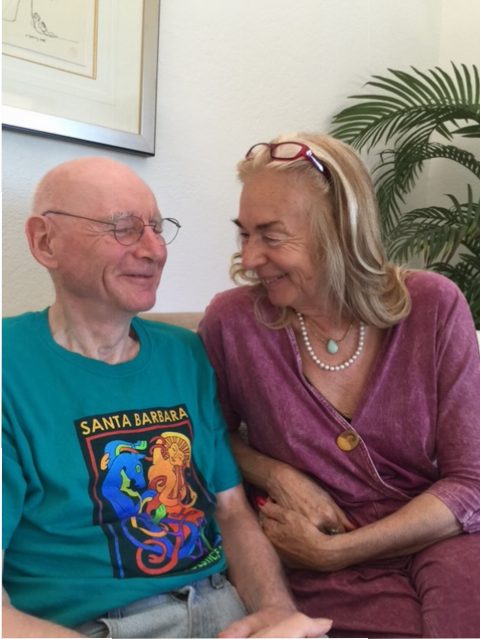How to Communicate Within Relationships – Know Yourself

Podcast: Download
Subscribe: Apple Podcasts | RSS
When there is something we need to agree on, whether it be a decision we have to make or a problem that needs to be resolved, we have found a way of dealing with it that does not involve any struggle or conflict.
Our approach is simple but very effective. We start by speaking in turn, offering our thoughts and feelings about the situation. Each of us listens and tries to understand the other, rather than defensively preparing counter-arguments.
A willingness to change and a belief that other positions are possible are both critical to this process. Our intention is to be together and to reach a solution or decision that is mutual. We are both fully present with each other, and neither of us has a predetermined answer. By hearing each other and being open, new ideas arise, and for each of us, our landscape of possibilities expands until we meet at a solution that neither of us imagined at the start. A new creation has emerged; something that is the product of both of us together, rather than from just one of us alone. “How Two: Have a Successful Relationship”

At the heart of successfully resolving issues and conflicts is – no surprise – communication.
Before you can have full and free flowing communication, you have to have full acceptance. We’ve covered that extensively elsewhere, so let’s take that as a given. And you need to talk one at a time and practice active listening.
Using this process requires the desire and follow through to get to know and understand yourself.
Visualize the experience: you are in a completely safe situation; you and your partner are on the same side and have affirmed this to each other; you are not going to be criticized for expressing your wants and feelings. In fact, you are being listened to and effort is being made to understand you and to acknowledge and incorporate what you share.
State your position on the issue, and more importantly, your feelings too. The critical question is “What is important to you?” You can do this because your partner fully accepts you. Any inhibitions arise not because of the consequences but from your own embarrassment. That’s a reluctance to expose yourself. Don’t get stuck there. The act of describing to your partner what you feel and what you want without holding anything back is a very liberating feeling.
Exploring new possibilities lets you & yr partner find a position that works for both of you #quote Share on XBy articulating both your rationale and your feelings, you not only give your partner insight into where you’re at, you do the same for yourself as well. Putting your feelings into words deepens your understanding of your position. Unnamed feelings are beyond our control; we simply act on them. By naming your desires, you begin to really hear them yourself and see what is driving you.
When your partner speaks the same way of their position and their feelings, your own position can change, both because of new ideas and ways of looking at it, and because their emotional openness engenders empathy. Of course, you have to be flexible enough to admit of other possibilities.
Each articulation of your desires and each adjustment of your position makes possible a deeper understanding of your needs and motives. As you go deeper, several things happen. You uncover and get in touch with universal human needs such as acknowledgement, respect, sex, companionship, touch and autonomy, and your original desires become less important because you can see them as a means to an end, a fulfillment of a deeper desire, rather than a necessity in their own right. In a Buddhist sense, you could say that the attachment to surface desires has been weakened.
Hearing what is important to you and how you feel gives you new opportunities. You can listen to yourself and make new decisions: Is this really important? Is this something you want to keep, or is this something old that you just haven’t left behind yet? The fact that your partner is not attacking you for what you share leaves you free to really hear and examine your expressed needs.
You will often find that you have leftovers still lurking in your kitchen: things that were important or needed in times gone by – the important phrase being ‘gone by’. The very process of sharing helps promote this clearer self knowledge, and the desire to find mutually satisfying solutions can lead you to be more open to new ways and different possibilities.
This method of speaking and at the same time hearing and learning from what you communicate enables you to let go of cumbersome attachments. The ones that are no longer serving you can be released in favor of new plans that work well for both of you.
By repeatedly exchanging views and exploring new possibilities, you and your partner can find a position that works for both of you without either of you having given anything up. It works because at base, most of our human needs are not antagonistic, but mutual. We need each other and draw strength from each other. Our existence is not threatened by being in partnership; instead, it is strengthened.
The better you know yourself, the more you can show your authentic self in the process of making decisions and solving problems. When this is the case, you can reach solutions that work for both of you.
Beautifully written. Thank you for this. The world can benefit from this, and any interpersonal communication is based on these principles! That goes for foreign relations as well!
Thank you, Mary. We didn’t write about it here, but we also believe that this applies to all relationships, and can and will spread around the world.